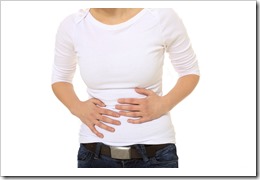 The term functional dyspepsia refers to indigestion problems that are unrelated to esophageal reflux, heartburn or irritable bowel syndrome. Symptoms typically occur with eating and include upper abdominal discomfort or pains, bloating, nausea, lack of appetite and feeling full quickly when eating. Ginger and artichoke have a long traditional history of being used to treat these kinds of complaints. The current randomized, placebo-controlled, double-blind trial was done to investigate this botanical combination in men and women with functional dyspepsia.
The term functional dyspepsia refers to indigestion problems that are unrelated to esophageal reflux, heartburn or irritable bowel syndrome. Symptoms typically occur with eating and include upper abdominal discomfort or pains, bloating, nausea, lack of appetite and feeling full quickly when eating. Ginger and artichoke have a long traditional history of being used to treat these kinds of complaints. The current randomized, placebo-controlled, double-blind trial was done to investigate this botanical combination in men and women with functional dyspepsia.
This study, conducted in Italy, assured that the participants did not have heartburn or irritable bowel syndrome, were not taking nonsteroidal anti-inflammatory drugs, had no history of gastrointestinal surgery, gastrointestinal ulcers, Helicobacter pylori nor were pregnant. The treatment protocol included 100 mg of artichoke and 20 mg of ginger in a gelatin capsule. Each participant took 1 capsule before lunch and one before dinner or placebo for 4 weeks. Patients rated their symptoms as no improvement or worse, slight improvement, marked improvement or completely improved, and they noted changes in stomach fullness, bloating, feeling full easily, nausea, vomiting and upper stomach pain. They had 4 clinic visits over a period of 4 weeks.
A total of 126 met the entrance criteria including 19 men and 46 women in the treatment group and 20 men and 41 women in the placebo group. All participants completed the study. The placebo group did have higher ratings of bloating, easy satiety and stomach pain scores before the study started.
Results: After 4 weeks of treatment, 63.1% in the ginger-artichoke group showed functional dyspepsia scores of marked or complete improvement compared with 24.6% of participants in the placebo group. After 2 weeks, the herbal group showed a significant improvement in the overall functional dyspepsia score and there was no improvement in any of those in the placebo group. There was also a significant reduction specifically in both nausea and stomach pain scores in the botanical group while symptoms actually increased in the placebo group, and especially for vomiting.
Commentary: The study results clearly show the effectiveness of the combination of ginger and artichoke in alleviating symptoms of functional dyspepsia, and those symptoms improved after 2 weeks and continued to the end of the 4 week study. It is thought that these herbs improve motility in the digestive tract, improve the emptying of the stomach and decrease nausea/vomiting. The gingerol compounds in ginger have previously shown to have this effect on nausea and vomiting— due to multiple causes (dyspepsia, pregnancy, motion sickness, medications and post-surgery). My clinical experience with these two herbs, and often in combination with broad spectrum digestive enzymes in combination with other traditional gastrointestinal herbs such as milk thistle, gentian, dandelion root, yellow dock root, burdock root, fennel, chamomile and cardamom holds a lot of relief and treatment for most individuals when functional dyspepsia is the accurate diagnosis.
Reference
Giacosa A, Guido D, Grassi M, et al. The effect of ginger (Zingiber officinalis [sic]) and artichoke (Cynara cardunculus) extract supplementation on functional dyspepsia: a randomised, double-blind, and placebo-controlled clinical trial. Evid Based Complement Alternat Med. 2015;2015:915087

